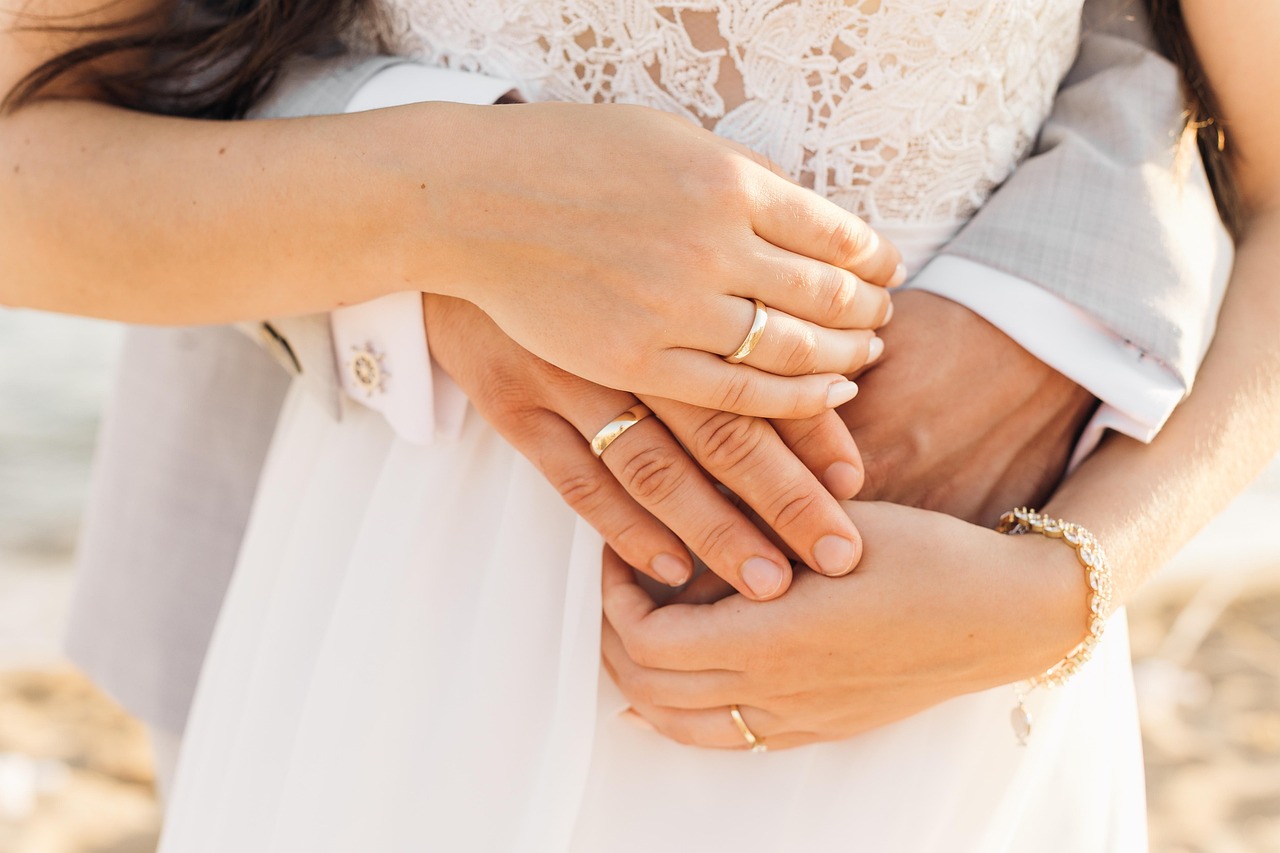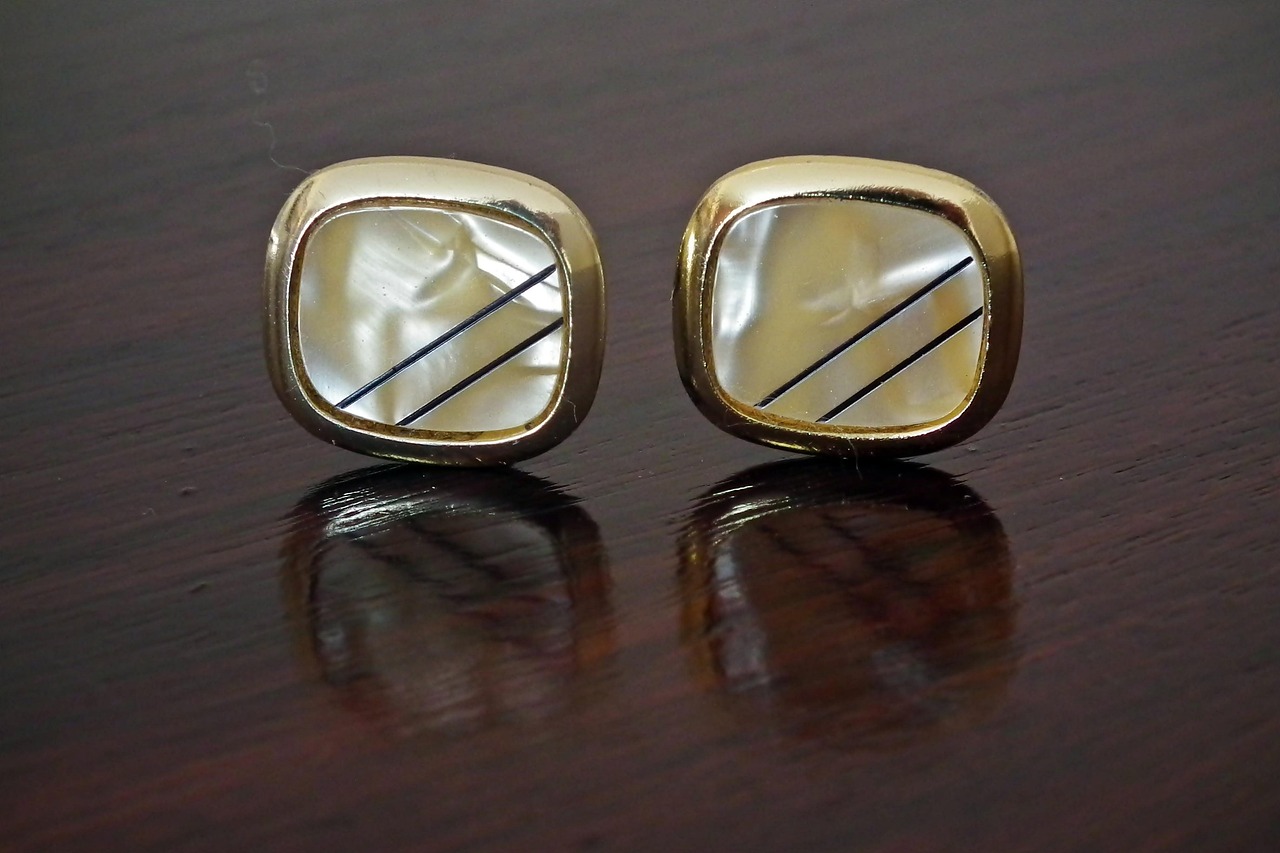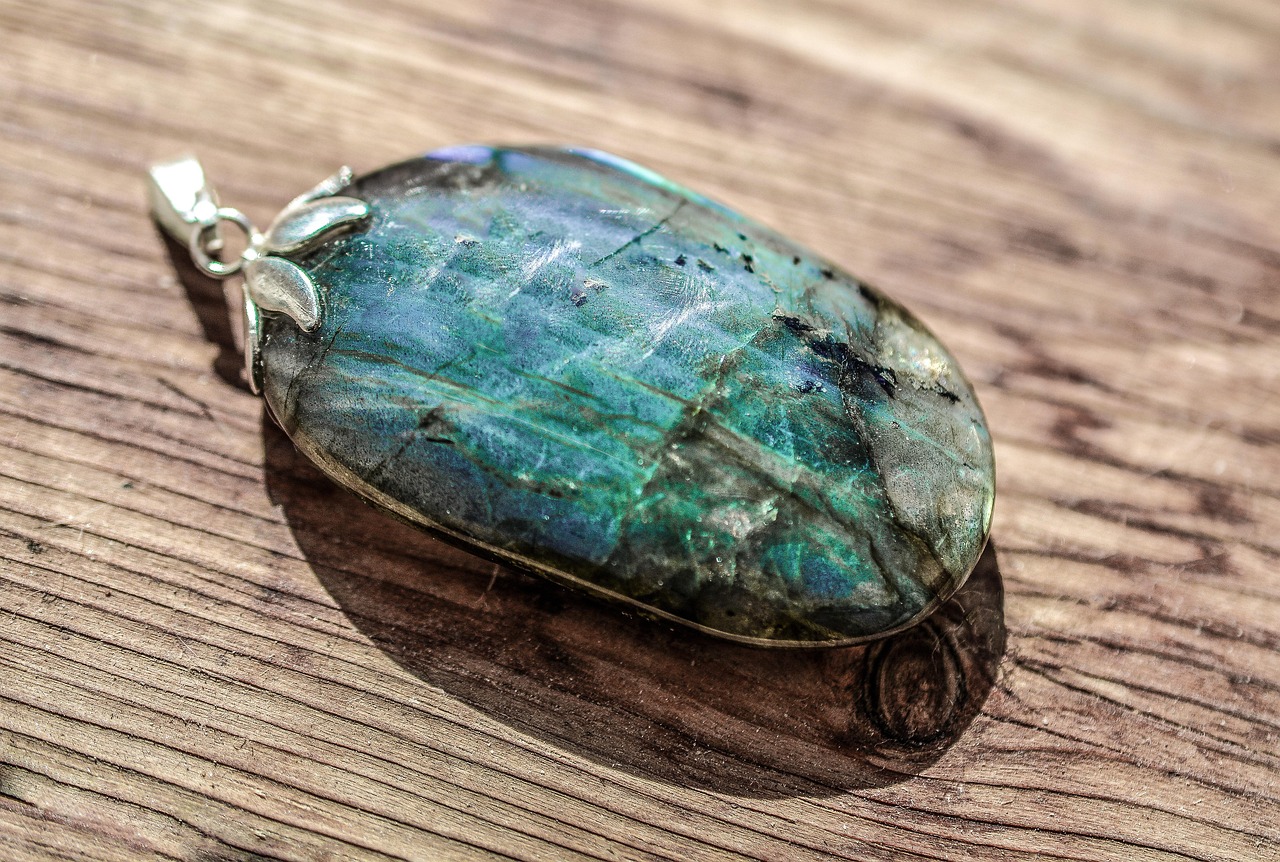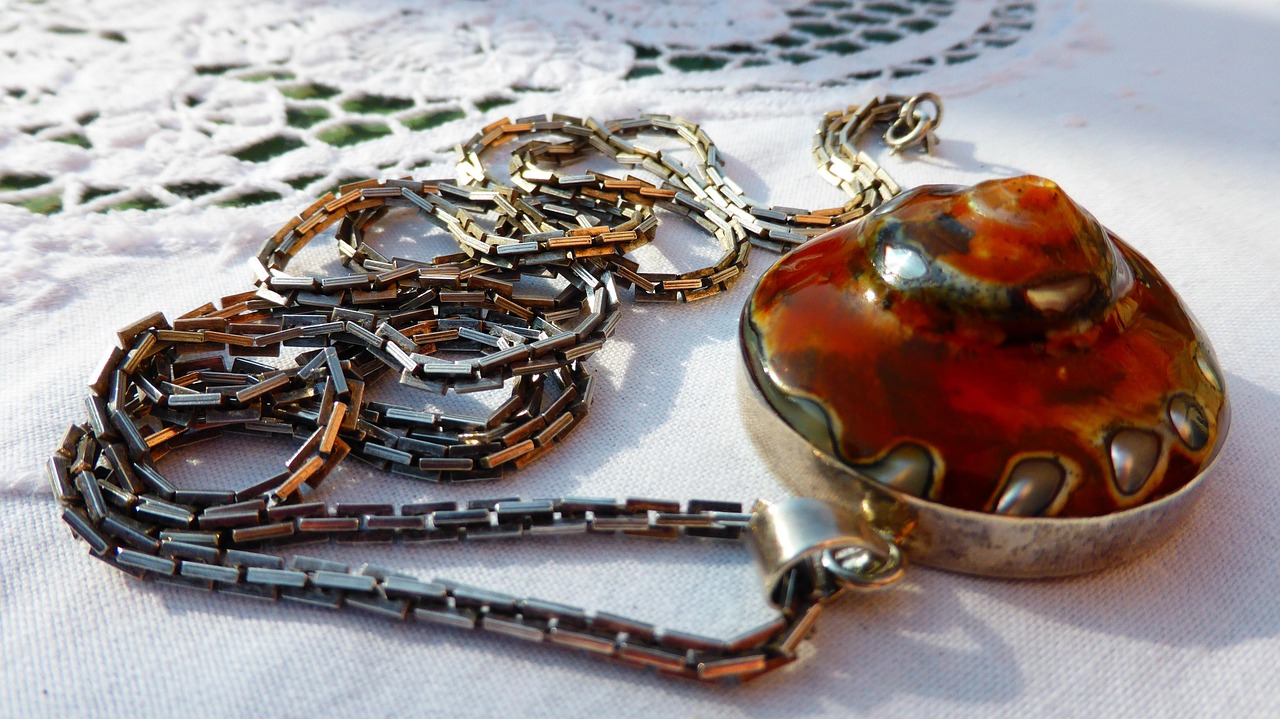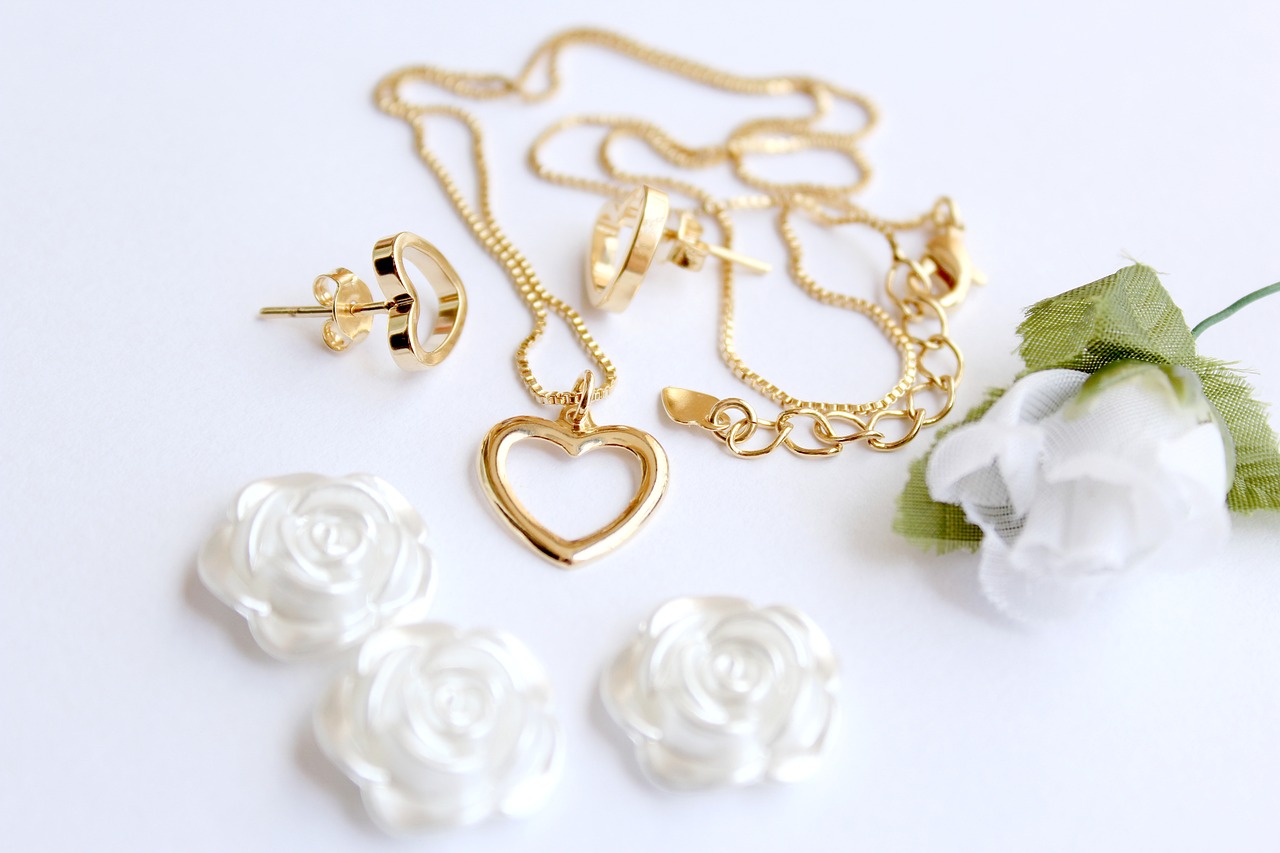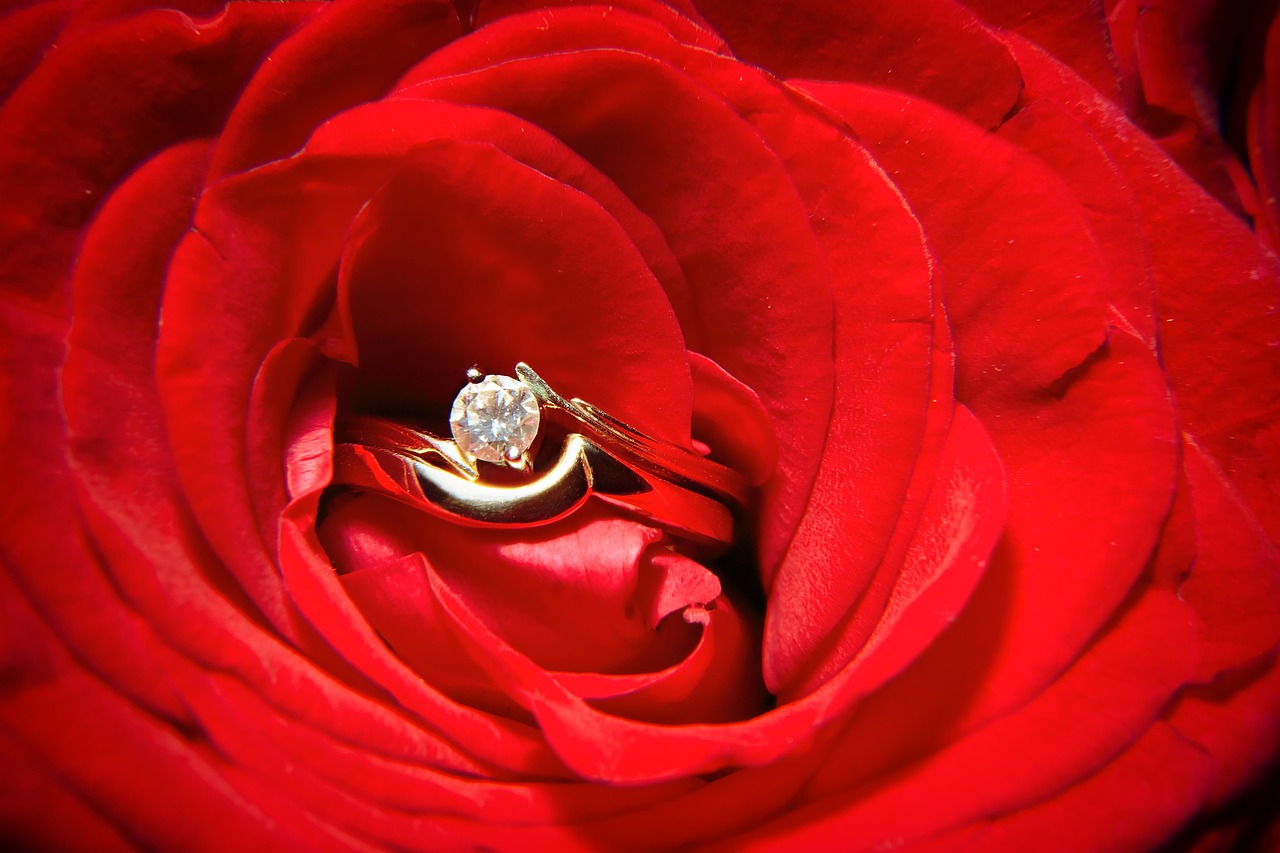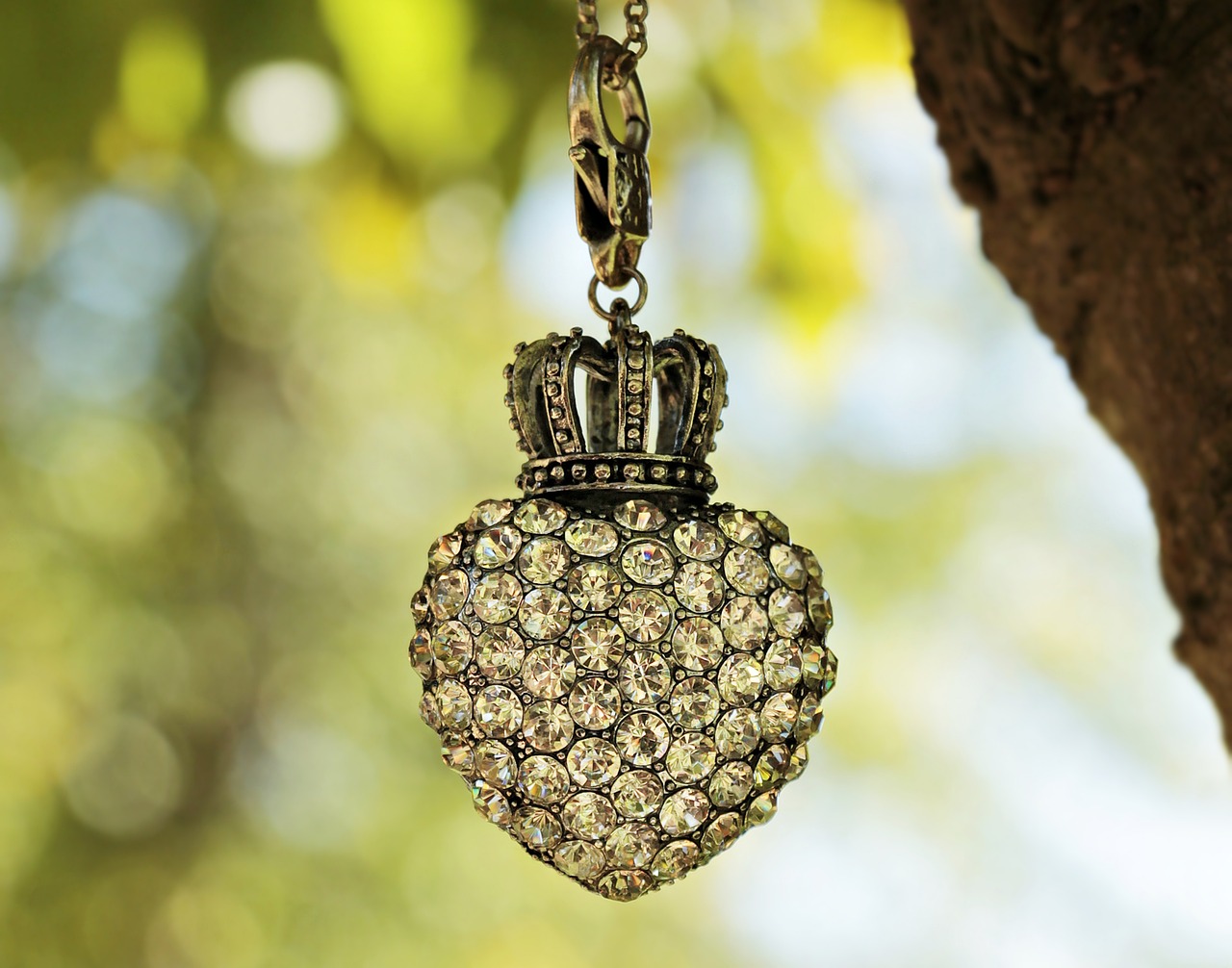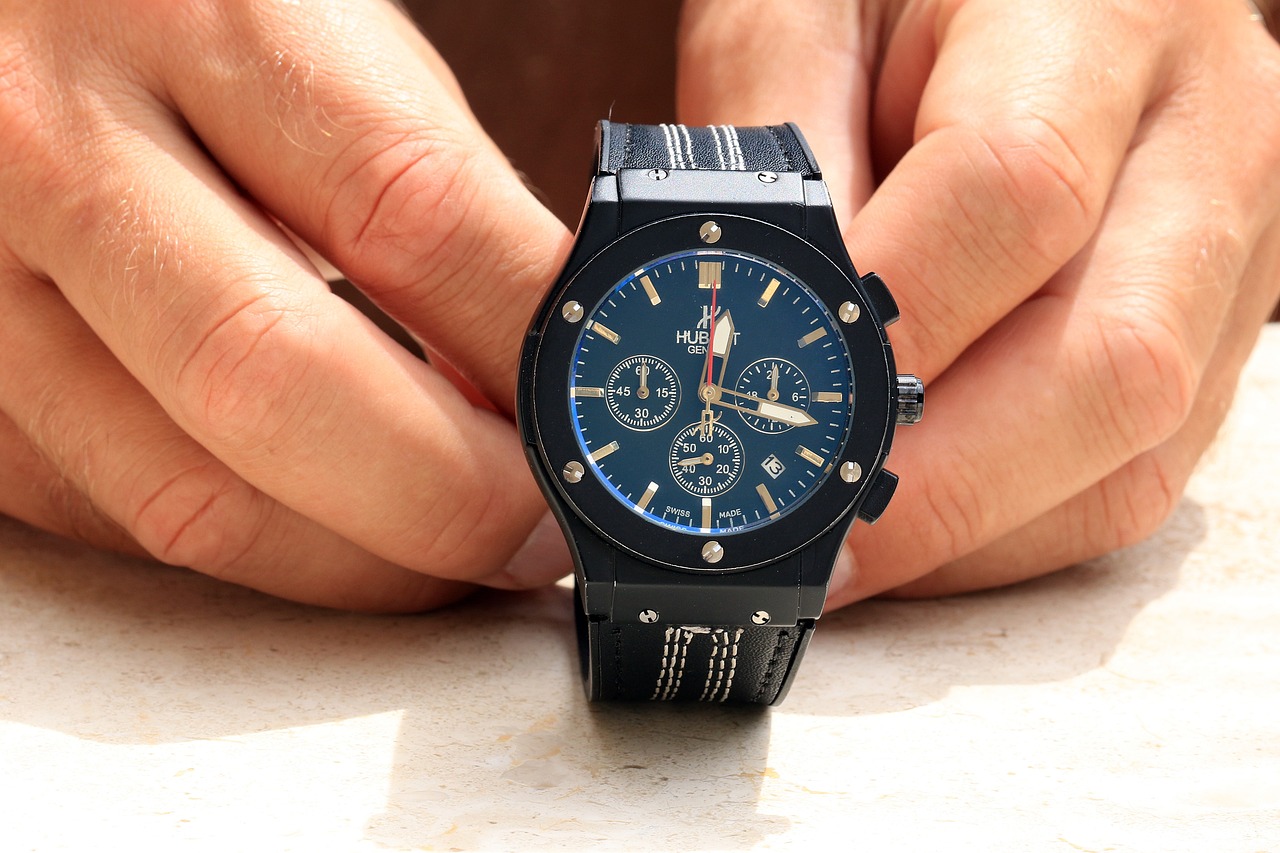This article delves into the importance of regular jewelry appraisals and insurance, emphasizing their critical role in safeguarding your investment and providing you with peace of mind.
What is Jewelry Appraisal?
Jewelry appraisal is a professional evaluation that assesses the value of your jewelry. This assessment considers various factors, including the quality of materials, craftsmanship, and current market trends. An accurate appraisal is essential for determining the true worth of your jewelry, especially if you plan to insure it or sell it in the future.
Why is Jewelry Appraisal Important?
Understanding the significance of jewelry appraisal is vital for protecting your investment. Without a proper appraisal, you might be underinsured, which can lead to financial loss in case of theft, loss, or damage. An accurate valuation ensures that you receive the right amount from your insurance provider, allowing you to replace or repair your jewelry without incurring significant out-of-pocket expenses.
How Does Appraisal Affect Insurance Coverage?
An accurate appraisal directly impacts your insurance coverage. It determines the coverage limit and the amount you will receive in the event of a claim. If your jewelry is appraised too low, you may not receive enough compensation to replace it. Therefore, having a current appraisal is crucial for adequate insurance protection.
What Factors Influence Jewelry Value?
- Gemstone Quality: The cut, clarity, color, and carat weight of gemstones significantly affect value.
- Metal Type: The type of metal (gold, silver, platinum) and its purity level play a crucial role.
- Designer Brand: Items from renowned designers typically hold higher value due to their brand reputation.
How Often Should You Get Your Jewelry Appraised?
Experts recommend getting your jewelry appraised every 3 to 5 years to account for fluctuations in market value and changes in your jewelry’s condition. Regular appraisals ensure that your insurance coverage remains adequate and reflective of your jewelry’s current worth.
Where to Find a Qualified Appraiser?
Finding a certified and experienced appraiser is essential for obtaining a reliable valuation. Consider seeking recommendations from trusted jewelers or professional organizations such as the American Society of Appraisers. Always verify the appraiser’s credentials and experience before proceeding.
Understanding Jewelry Insurance
Jewelry insurance provides financial protection against loss, theft, or damage. It ensures that you can replace or repair your precious items without facing significant financial strain. Understanding the specifics of your insurance policy, including coverage limits and exclusions, is crucial for adequate protection.
What Does Jewelry Insurance Cover?
Jewelry insurance typically covers loss, theft, and damage. However, it is vital to read your policy carefully to understand any exclusions or limitations. Some policies may not cover certain types of damage or may have specific conditions that must be met for a claim to be valid.
How to Choose the Right Insurance Policy?
Choosing the right insurance policy involves comparing coverage options, premiums, and deductibles. Look for a plan that not only fits your budget but also offers comprehensive coverage for your jewelry. Consult with an insurance agent who specializes in jewelry insurance to ensure you make an informed decision.
How to Maintain Your Jewelry’s Value?
Regular maintenance is essential for preserving the condition and value of your jewelry. This includes proper cleaning and storage practices. Incorporating these habits into your routine can help you maintain the beauty and integrity of your pieces.
What Cleaning Methods Are Safe for Jewelry?
Using appropriate cleaning methods is crucial to avoid damaging your jewelry. For delicate items, consider professional cleaning services. For at-home care, use gentle cleaning solutions and soft cloths to maintain shine without causing harm.
Why is Proper Storage Important?
Proper storage prevents scratches, tangles, and other damage, ensuring your jewelry remains in excellent condition. Use soft pouches or dedicated jewelry boxes to keep items separated and protected from environmental factors.

What is Jewelry Appraisal?
Jewelry appraisal is a crucial process that involves the expert evaluation of your jewelry to establish its market value. This assessment takes into account various factors such as the quality of materials used, the intricacy of craftsmanship, and current market trends. Understanding the nuances of jewelry appraisal can empower you to make informed decisions regarding your precious items.
During an appraisal, a certified professional will closely examine your jewelry, focusing on elements like gemstone quality, metal type, and design uniqueness. Each of these factors plays a vital role in determining the overall value. For instance, the presence of high-quality diamonds or rare gemstones can significantly enhance the worth of a piece. Likewise, the type of metal—be it gold, platinum, or silver—also influences valuation, as market demand for these materials fluctuates.
Furthermore, the craftsmanship involved in creating the jewelry is equally important. Items made by renowned designers or artisans often carry a premium due to their brand reputation and the skill involved in their creation. This is why it’s essential to have a thorough understanding of your jewelry’s origin and the expertise behind its creation.
In addition to intrinsic qualities, market trends also impact jewelry appraisal. The jewelry market can be volatile; prices can rise or fall based on economic conditions, fashion trends, and consumer demand. Therefore, having your jewelry appraised regularly helps ensure that you have an updated valuation that reflects current market realities.
Moreover, a comprehensive appraisal is not just about knowing the value of your jewelry for resale purposes. It is also critical for insurance coverage. An accurate appraisal provides the necessary documentation that insurance companies require to offer coverage on your jewelry. In the unfortunate event of loss, theft, or damage, having a precise appraisal ensures that you are compensated fairly, allowing you to replace or repair your cherished items without significant financial strain.
Experts recommend that you should get your jewelry appraised every 3 to 5 years. This timeframe allows you to keep pace with changing market values and any alterations in the condition of your jewelry. Regular appraisals help maintain an accurate record of your jewelry’s value, which is particularly important if you plan to pass it down as an heirloom or sell it in the future.
Finding a qualified appraiser is essential to obtaining a reliable valuation. Look for professionals who are certified by reputable organizations, and consider seeking recommendations from trusted jewelers or industry contacts. A qualified appraiser will not only provide a fair market value but also offer insights into the care and maintenance of your jewelry, ensuring you preserve its value over time.
In conclusion, understanding what jewelry appraisal entails is vital for anyone who owns valuable pieces. It is not merely a formality; it is a necessary step in protecting your investment and ensuring that you have the right coverage for your jewelry. By staying informed and proactive about appraisals, you can enjoy peace of mind knowing that your treasures are adequately valued and insured.

Why is Jewelry Appraisal Important?
Jewelry is not just an accessory; it often holds significant emotional and financial value. Therefore, understanding the importance of jewelry appraisal is crucial for every jewelry owner. Regular appraisals help safeguard your investment, ensuring you possess an accurate valuation for both insurance and resale purposes.
Jewelry appraisal is a professional evaluation that assesses the worth of your jewelry items. This process takes into account various elements, including the quality of materials, the intricacy of craftsmanship, and prevailing market trends. By obtaining a thorough appraisal, you can better understand the true value of your pieces.
Understanding the significance of jewelry appraisal helps you protect your investment. An accurate valuation is essential for several reasons:
- Insurance Coverage: An updated appraisal ensures that your insurance policy reflects the true value of your jewelry. In case of loss, theft, or damage, having an accurate appraisal can make the difference between receiving adequate compensation and facing financial loss.
- Resale Value: If you ever decide to sell your jewelry, a current appraisal provides potential buyers with confidence in the item’s value. This can significantly enhance your ability to negotiate a fair price.
- Estate Planning: For those considering estate planning, having an accurate appraisal is vital. It helps in determining the value of your assets and ensures that your heirs receive their fair share.
An accurate appraisal is critical for your insurance coverage. It establishes the amount you will receive in the event of loss or damage. Without a proper appraisal, you risk being underinsured, which could lead to financial strain when trying to replace your jewelry.
Several factors play a significant role in determining the value of your jewelry during an appraisal:
- Gemstone Quality: The quality, size, and rarity of gemstones greatly influence value.
- Metal Type: Different metals, such as platinum, gold, and silver, have varying market values.
- Designer Brand: Pieces from renowned designers often carry a premium due to their brand reputation.
Experts recommend getting your jewelry appraised every 3 to 5 years. This frequency accounts for fluctuations in market value and any changes in the condition of your jewelry. Regular appraisals ensure that your insurance coverage remains adequate and reflective of your jewelry’s current worth.
Finding a certified and experienced appraiser is vital for obtaining a reliable valuation. Look for recommendations from trusted jewelers or professional organizations. Ensure that the appraiser holds relevant credentials and has a solid reputation within the industry.
Jewelry insurance provides essential financial protection against loss, theft, or damage. It ensures that you can replace or repair your precious items without incurring significant out-of-pocket expenses. A proper understanding of your insurance policy can help you navigate coverage and exclusions effectively.
Choosing the right insurance policy involves comparing various options, premiums, and deductibles. Ensure that the policy you select aligns with your needs and budget, offering comprehensive coverage for your valuable items.
Regular maintenance is crucial for preserving the condition and value of your jewelry. Incorporate safe cleaning methods and proper storage practices into your routine to keep your pieces in excellent condition.
Using appropriate cleaning methods is essential to avoid damaging your jewelry. Consider professional cleaning for delicate items and learn safe at-home techniques to maintain their shine and integrity.
Proper storage prevents scratches, tangles, and other forms of damage, ensuring your jewelry remains in excellent condition. Use soft pouches, individual compartments, or jewelry boxes to keep your items safe.
How Does Appraisal Affect Insurance Coverage?
When it comes to safeguarding your precious jewelry, understanding the nuances of appraisal and insurance coverage is paramount. An accurate appraisal is not just a formality; it serves as the foundation of your insurance policy. This article delves into how appraisal directly impacts your insurance coverage, ensuring you are well-informed about protecting your valuable possessions.
Jewelry appraisal involves a detailed evaluation conducted by a certified professional. The appraiser assesses various aspects of the jewelry, including material quality, craftsmanship, and current market trends. This process generates a fair market value, which is crucial for insurance purposes. Without an accurate appraisal, you risk being underinsured or overinsured, neither of which is ideal.
Insurance companies rely on the appraised value to determine the coverage amount for your jewelry. In the unfortunate event of loss, theft, or damage, the appraisal dictates how much compensation you will receive. If your jewelry is appraised too low, you may find yourself facing significant out-of-pocket expenses to replace it. Conversely, an inflated appraisal might lead to higher premiums without any real benefit.
During an appraisal, the appraiser will examine your jewelry under controlled conditions, using specialized tools to assess its quality and authenticity. This includes checking for gemstone clarity, color, and carat weight, as well as evaluating the metal type and any designer markings. The final report will include a detailed description and a current market value, which is essential for your insurance policy.
Experts recommend having your jewelry appraised every 3 to 5 years. This frequency accounts for fluctuations in market value and changes in the condition of your jewelry. Regular appraisals ensure that your insurance coverage remains adequate and reflects the true value of your items.
Finding a qualified appraiser is critical. Look for professionals who hold certifications from recognized organizations, such as the American Society of Appraisers or the National Association of Jewelry Appraisers. Recommendations from trusted jewelers can also guide you to reputable appraisers. A qualified appraiser will provide a reliable valuation that can significantly affect your insurance coverage.
Once you have an accurate appraisal, the next step is to secure a suitable insurance policy. Jewelry insurance typically covers loss, theft, and damage, but it’s essential to read the fine print. Some policies may have exclusions or limitations that can affect your coverage. Make sure to discuss your appraisal with your insurance agent to ensure that your policy aligns with the appraised value.
In summary, an accurate appraisal is crucial for ensuring that you have the right insurance coverage for your jewelry. It not only determines the compensation you will receive in case of loss or damage but also helps you avoid potential pitfalls of being underinsured or overinsured. Regular appraisals, conducted by qualified professionals, are an essential part of maintaining your jewelry’s value and ensuring peace of mind.
What Factors Influence Jewelry Value?
When it comes to determining the value of your jewelry, several critical factors come into play. Understanding these elements is essential for both appraisals and insurance purposes, ensuring that you are adequately protected and informed about your investment.
The quality of gemstones is perhaps the most significant factor influencing jewelry value. Factors such as cut, clarity, color, and carat weight (the 4 Cs) directly affect a gemstone’s desirability and market price. For instance, a well-cut diamond with high clarity and a vibrant color will command a much higher price than one with visible inclusions or poor cut quality. Additionally, the rarity of certain gemstones, like emeralds or rubies, can also elevate their value considerably.
The type of metal used in jewelry construction plays a crucial role in determining its value. Precious metals such as gold, platinum, and silver are highly sought after, with gold and platinum often fetching higher prices due to their scarcity and durability. Moreover, the karat rating of gold (e.g., 14K, 18K, 24K) indicates its purity and directly correlates with value. For example, 24K gold is considered pure and is more valuable than lower karat gold, which contains other metals.
The brand and designer behind a piece of jewelry can significantly influence its value. Well-known designers or luxury brands, such as Tiffany & Co. or Cartier, often add a premium to their pieces due to their reputation for quality and exclusivity. Collectors and enthusiasts are often willing to pay more for items from these brands, viewing them as investments rather than mere accessories.
The level of craftsmanship and the uniqueness of the design also contribute to the overall value of jewelry. Handcrafted pieces or those featuring intricate designs often carry a higher price tag than mass-produced items. A jeweler’s skill and attention to detail can enhance a piece’s aesthetic appeal and, consequently, its market value.
Jewelry value is also influenced by current market trends. Economic conditions, fashion trends, and consumer demand can all impact the value of your jewelry. For example, during economic downturns, luxury items may see a decline in value, while certain styles or gemstones may become more fashionable, increasing their worth. Staying informed about market trends can help you make better decisions regarding your jewelry investments.
The condition of your jewelry is paramount in determining its value. Well-maintained pieces that show minimal wear and tear will appraise higher than those that have been neglected. Regular cleaning and proper storage are essential for preserving your jewelry’s condition. Additionally, any repairs or alterations made to a piece can affect its value, either positively or negatively, depending on the quality of the work.
Lastly, the provenance or history of a piece can significantly affect its value. Jewelry with a documented history, such as having belonged to a famous figure or being part of a significant collection, often commands a higher price. Collectors value the story behind a piece, which can enhance its allure and market value.
In summary, understanding these factors is essential for anyone looking to appraise or insure their jewelry. By considering gemstone quality, metal type, designer brand, craftsmanship, market trends, condition, and provenance, you can ensure that you are well-informed about the value of your jewelry.
How Often Should You Get Your Jewelry Appraised?
When it comes to the world of jewelry, understanding its value is paramount. One essential aspect of maintaining your jewelry’s worth is knowing how often to get it appraised. Experts recommend getting your jewelry appraised every 3 to 5 years to account for fluctuations in market value and changes in your jewelry’s condition. This practice not only protects your investment but also ensures you have the correct information for insurance purposes.
Jewelry is often a significant investment, and its value can change over time due to various factors. Regular appraisals help you stay informed about the current market value of your pieces. Market trends can fluctuate based on economic conditions, demand for certain gemstones, and even fashion trends. By understanding these changes, you can make informed decisions about selling or insuring your jewelry.
During an appraisal, a qualified professional evaluates your jewelry based on several criteria, including:
- Material Quality: The type of metal and gemstones used significantly influence value.
- Craftsmanship: The skill and artistry involved in creating the piece can add to its worth.
- Market Trends: Current demand and supply for specific styles and materials are assessed.
This comprehensive evaluation ensures that you receive an accurate and up-to-date valuation of your jewelry.
Over time, jewelry can undergo wear and tear. Regular appraisals allow you to assess any changes in condition, such as:
- Scratches and Dents: Physical damage can lower the value of your pieces.
- Loose Stones: Stones that are no longer securely set can affect both aesthetics and value.
- Changes in Style: Trends evolve, and what was once in vogue may no longer hold the same appeal.
Addressing these issues promptly can help maintain the integrity and value of your jewelry.
Once you receive your appraisal, it is essential to take the following steps:
- Update Your Insurance: Ensure your insurance policy reflects the new value of your jewelry.
- Document the Appraisal: Keep a copy of the appraisal for your records, which can be useful for future reference or in case of a claim.
- Consider Selling: If the appraisal reveals a significant increase in value, it might be a good time to consider selling.
Choosing the right appraiser is crucial for obtaining a reliable valuation. Look for professionals who are certified and have a good reputation in the industry. Recommendations from trusted jewelers or professional organizations can be invaluable in this process.
Regular jewelry appraisals are vital for protecting your investment. By getting your jewelry appraised every 3 to 5 years, you can ensure that you are aware of its current market value and condition. This practice not only helps with insurance coverage but also supports informed decisions regarding your jewelry collection. Investing in regular appraisals is a proactive step towards safeguarding your precious items.
Where to Find a Qualified Appraiser?
Finding a certified and experienced appraiser is crucial for obtaining a reliable and accurate valuation of your jewelry. An appraisal is not merely a formality; it is an essential step in protecting your valuable assets. Here are some effective strategies to help you locate a qualified appraiser.
One of the most effective ways to find a reputable appraiser is to seek recommendations from trusted jewelers or professional organizations. Jewelers often have established relationships with appraisers and can provide valuable insights into their qualifications and expertise. Additionally, organizations such as the American Society of Appraisers or the National Association of Jewelry Appraisers maintain directories of certified appraisers who adhere to industry standards.
When evaluating potential appraisers, it is essential to check their credentials and certifications. Look for appraisers who have completed recognized training programs and hold relevant certifications. Certifications from reputable organizations indicate that the appraiser has met specific educational and professional standards, ensuring their competency in jewelry valuation.
Experience plays a significant role in the quality of an appraisal. Look for appraisers with extensive experience in the jewelry industry, particularly those who specialize in the type of jewelry you own, whether it be antique, contemporary, or designer pieces. An appraiser with a deep understanding of market trends and gemstone quality can provide a more accurate valuation.
Before committing to an appraiser, consider requesting sample appraisals. This will allow you to evaluate their methodology and the level of detail included in their reports. A thorough appraisal should include a comprehensive description of the item, including materials, dimensions, and photographs, as well as a clear explanation of the valuation process.
It is also essential to inquire about the appraiser’s insurance and liability coverage. A qualified appraiser should carry professional liability insurance to protect you in case of errors or omissions in their appraisal. This coverage adds an extra layer of assurance that you are working with a responsible professional.
In today’s digital age, online reviews and testimonials can provide valuable insights into an appraiser’s reputation. Websites like Yelp or Google Reviews can offer feedback from previous clients, helping you gauge the appraiser’s reliability and quality of service. Look for appraisers with consistently positive reviews and a track record of satisfied customers.
Finally, schedule a consultation with the appraiser before making a final decision. This meeting will allow you to ask questions, discuss your jewelry, and assess their communication style. A qualified appraiser should be willing to explain their process and address any concerns you may have.
By following these steps, you can find a qualified appraiser who will provide a reliable valuation for your jewelry. Taking the time to conduct thorough research not only ensures that you receive an accurate appraisal but also helps safeguard your investment for years to come.
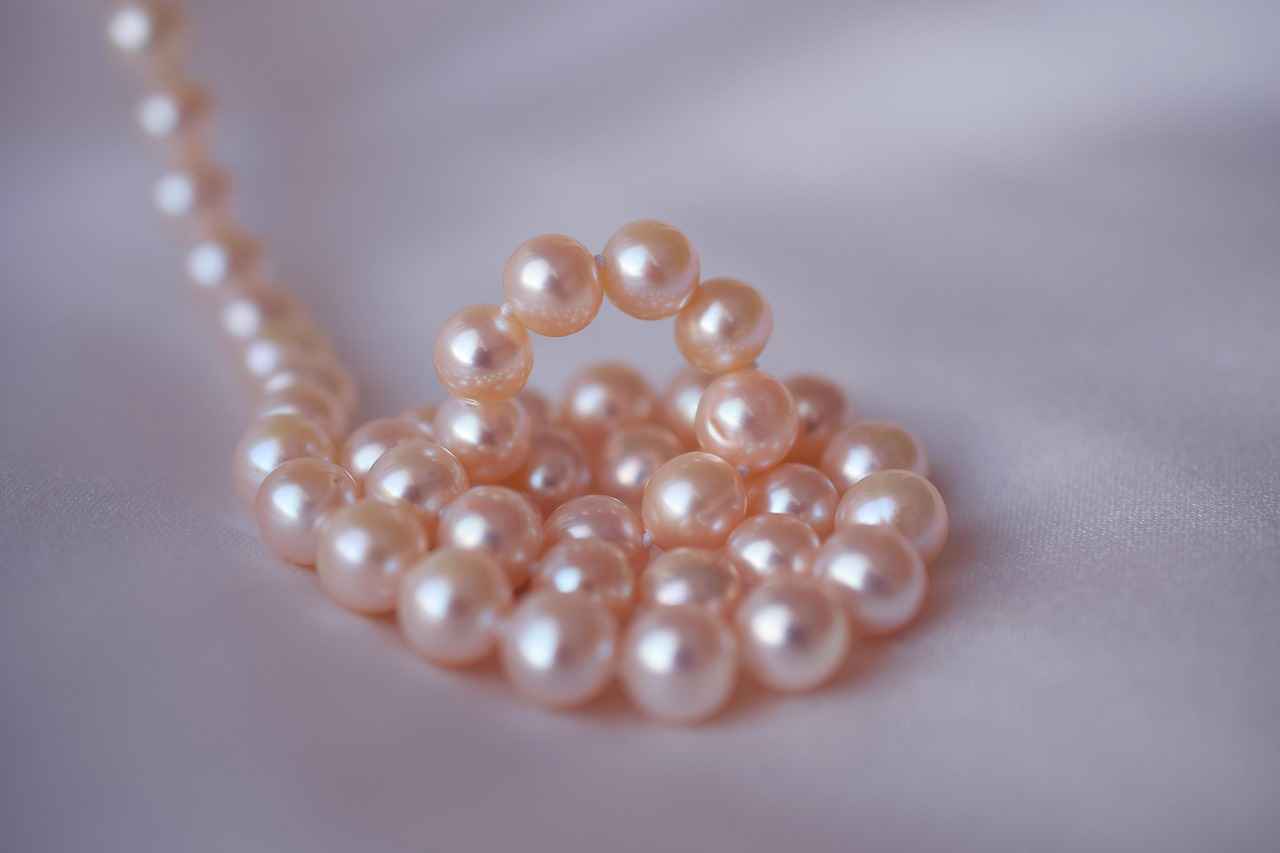
Understanding Jewelry Insurance
is essential for anyone who owns valuable pieces. Jewelry insurance offers financial protection against loss, theft, or damage, allowing you to replace or repair your precious items without incurring significant out-of-pocket expenses. In this section, we will delve into the specifics of jewelry insurance, its coverage, and how to choose the right policy.
Jewelry insurance typically covers:
- Loss: If your jewelry is lost due to unforeseen circumstances, your policy can help you recover its value.
- Theft: In the unfortunate event of theft, having insurance ensures you can replace your stolen items.
- Damage: Insurance can cover repair costs for damaged jewelry, whether from accidents or wear and tear.
However, it is crucial to read your policy carefully to understand any exclusions. Some policies may not cover specific types of damage or may have limitations based on the value of the item.
Selecting the right jewelry insurance policy involves careful consideration of several factors:
- Coverage Options: Evaluate what is included in the policy. Some may offer replacement value, while others may only cover the appraised value.
- Premiums and Deductibles: Compare different policies to find a balance between affordable premiums and reasonable deductibles.
- Insurer Reputation: Research the insurance company’s reputation. Look for reviews and ratings to ensure they have a history of good customer service and claims handling.
Investing in jewelry is not just about aesthetics; it’s also about value. Jewelry can appreciate over time, making it a significant asset. Without proper insurance, you risk losing that investment. Here are some reasons why jewelry insurance is essential:
- Peace of Mind: Knowing that your valuable items are protected allows you to enjoy them without constant worry.
- Financial Security: In case of loss or damage, insurance mitigates the financial impact, enabling you to replace or repair your jewelry without substantial costs.
- Comprehensive Protection: Insurance policies can be tailored to cover various scenarios, ensuring your jewelry is safeguarded against a range of risks.
While insurance is crucial, maintaining the value of your jewelry is equally important. Regular maintenance, including cleaning and proper storage, can help preserve its condition and value. Here are some practical tips:
- Regular Cleaning: Clean your jewelry regularly to remove dirt and oils that can cause damage over time.
- Professional Inspections: Have your jewelry inspected by a professional jeweler periodically to check for any potential issues.
- Safe Storage: Store your jewelry in a cool, dry place, preferably in a jewelry box or pouch to prevent scratches and tangles.
In summary, understanding jewelry insurance is vital for protecting your valuable pieces. By knowing what coverage options are available, how to choose the right policy, and the importance of regular maintenance, you can ensure that your investment remains secure and retains its value over time.
What Does Jewelry Insurance Cover?
Understanding the nuances of jewelry insurance is essential for any jewelry owner. While many people believe that jewelry insurance simply covers loss, theft, and damage, the reality is much more complex. It’s crucial to delve into the specifics of your policy to ensure you are adequately protected.
Jewelry insurance generally covers various scenarios, including:
- Loss: If your jewelry is lost due to unforeseen circumstances, such as misplacement or natural disasters, insurance can help you recover its value.
- Theft: In the unfortunate event of theft, a comprehensive policy will compensate you for the stolen items, provided you have reported the incident to the authorities.
- Damage: Accidental damage, such as a broken clasp or a chipped gemstone, is often covered, allowing you to repair your jewelry without incurring hefty out-of-pocket expenses.
While understanding what is covered is important, it’s equally vital to be aware of exclusions. Many policies may not cover:
- Wear and Tear: Regular use can lead to natural wear, which is generally not covered under most insurance policies.
- Intentional Damage: Any damage that occurs intentionally or due to negligence may void your coverage.
- Unreported Loss: If you do not report the loss or theft to the police, your claim may be denied.
Having your jewelry appraised is not just a formality; it is crucial for determining the correct coverage amount. An accurate appraisal ensures that you are compensated fairly in the event of a claim. Without it, you might find yourself underinsured, which could lead to significant financial loss.
When selecting a policy, consider the following:
- Coverage Limits: Ensure that the policy covers the full value of your jewelry, including any recent appraisals.
- Deductibles: Understand the deductibles that apply to your policy, as they will affect your out-of-pocket costs during a claim.
- Provider Reputation: Research the insurance provider’s reputation for handling claims, as this can make a significant difference in your experience.
Maintaining the condition of your jewelry is essential not only for aesthetics but also for its insurability. Regular cleaning, proper storage, and timely appraisals can help keep your jewelry in top shape. Additionally, consider documenting any changes or repairs made to your jewelry, as this can be beneficial when filing a claim.
In summary, understanding the specifics of your jewelry insurance policy is critical. From knowing what is covered to being aware of exclusions, taking the time to educate yourself will ensure that your precious items are adequately protected. Always consult with a qualified insurance agent and a certified appraiser to get the best protection for your investment.
How to Choose the Right Insurance Policy?
Choosing the right insurance policy is a critical decision that requires careful consideration and analysis. The process involves evaluating various coverage options, understanding premiums, and assessing deductibles. By taking these factors into account, you can identify a plan that best aligns with your unique needs and budget.
When selecting an insurance policy, it is essential to thoroughly examine the coverage options available. Different policies may offer varying levels of protection, including:
- Replacement value coverage: Ensures you receive the full value of your jewelry in case of loss or theft.
- Actual cash value coverage: Provides compensation based on the current market value, which may be lower than the original purchase price.
- Scheduled coverage: Allows you to list specific items for individual coverage, ensuring they are adequately protected.
Understanding these options will help you choose a policy that provides the right level of protection for your valuable items.
Premiums are the amounts you pay for your insurance coverage, and they can vary significantly between policies. Factors that influence premiums include:
- The total value of the jewelry being insured.
- Your location and the likelihood of theft or loss.
- The type of coverage selected.
It is advisable to obtain quotes from multiple insurers to compare premiums and ensure you are getting the best deal without compromising on coverage quality.
Deductibles are the amounts you must pay out of pocket before your insurance coverage kicks in. Selecting a deductible that aligns with your financial situation is crucial. A lower deductible often means higher premiums, while a higher deductible can reduce your monthly payments. Consider your budget and how much you can afford to pay in the event of a claim when choosing a deductible.
Not all insurance providers are created equal. Researching and comparing reputable companies is essential for finding a policy that meets your needs. Look for:
- Customer reviews: Check online reviews and ratings to gauge customer satisfaction.
- Claims process: Investigate how easy it is to file a claim and the provider’s track record in handling claims efficiently.
- Financial stability: Ensure the company has a strong financial rating, indicating they can pay claims when needed.
Consider consulting with a qualified insurance agent or a financial advisor who specializes in jewelry insurance. They can provide personalized advice and help you navigate the complexities of insurance policies, ensuring you make an informed decision.
Once you have chosen an insurance policy, it is important to review it regularly. Changes in the market value of your jewelry, as well as personal circumstances, may necessitate adjustments to your coverage. Regular appraisals can help ensure that your policy remains adequate and that you are not underinsured.
In summary, choosing the right insurance policy involves a comprehensive approach that includes evaluating coverage options, understanding premiums and deductibles, researching providers, consulting experts, and regularly reviewing your policy. By taking these steps, you can secure a plan that offers you peace of mind and protects your valuable jewelry investment.
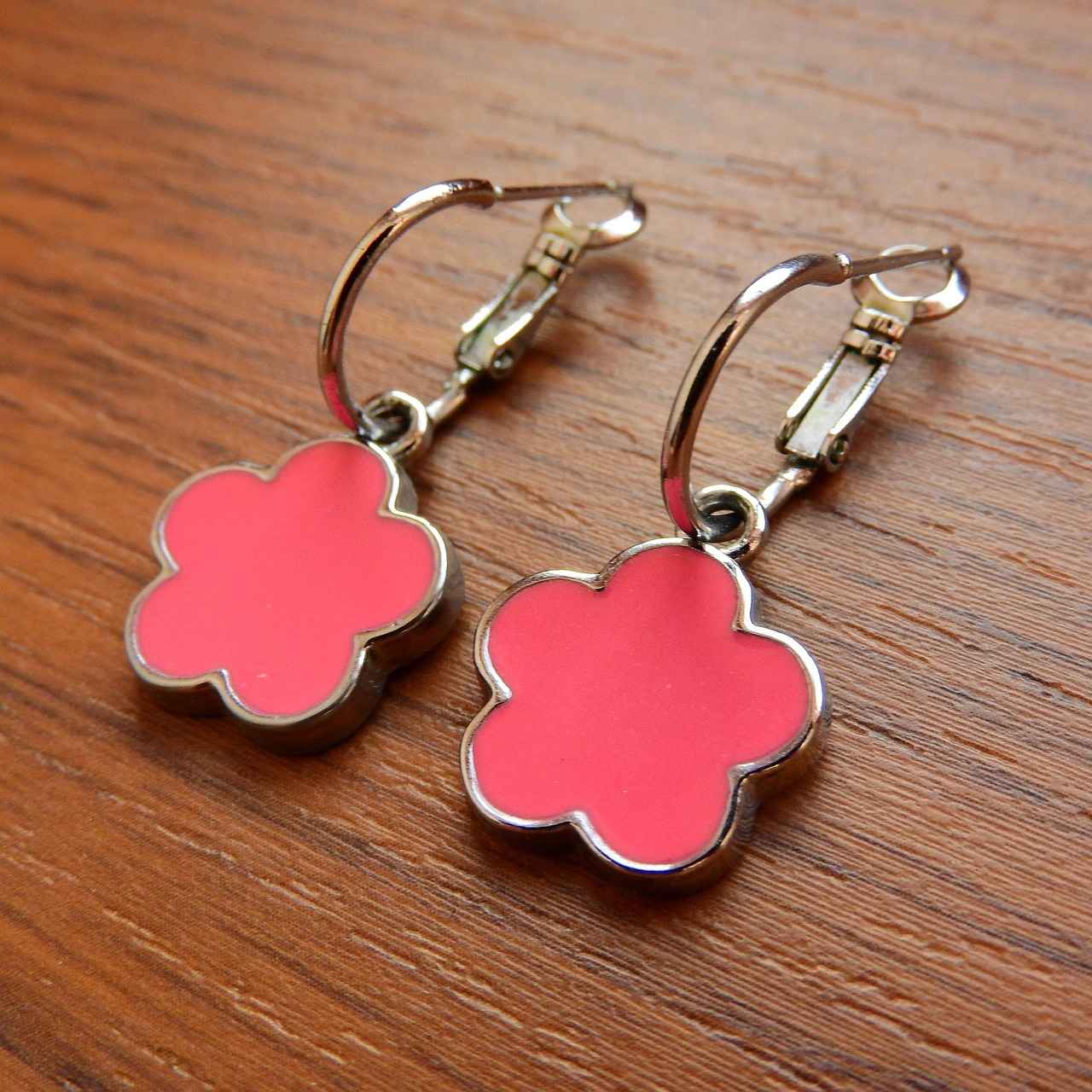
How to Maintain Your Jewelry’s Value?
Jewelry is not just an accessory; it is often a significant investment that holds both monetary and sentimental value. To ensure that your cherished pieces retain their beauty and worth over time, it is essential to incorporate regular maintenance practices into your routine. This article delves into effective ways to maintain your jewelry’s value, focusing on cleaning, proper storage, and periodic professional evaluations.
Regular cleaning is crucial for preserving the luster and integrity of your jewelry. Over time, dirt, oils, and other residues can accumulate on your pieces, dulling their shine and potentially causing damage. Here are some effective cleaning methods:
- Gentle Soap and Water: For most jewelry types, a mixture of warm water and mild soap can effectively remove surface grime. Use a soft cloth or a soft-bristled toothbrush to gently scrub the pieces.
- Professional Cleaning: For delicate items, such as those with intricate designs or fragile gemstones, it is advisable to seek professional cleaning services. Experts have the right tools and techniques to clean your jewelry without causing harm.
Proper storage is just as important as cleaning when it comes to maintaining the value of your jewelry. Here are some tips to keep your pieces safe:
- Use Individual Pouches: Store each piece in a separate pouch or compartment to prevent scratches and tangles. Soft fabric pouches are ideal for this purpose.
- Avoid Humidity: Keep your jewelry in a cool, dry place. Humidity can cause tarnishing, especially for silver and certain gemstones.
It is recommended to clean your jewelry every few months, but the frequency may vary depending on how often you wear it. If you wear a piece daily, consider cleaning it monthly. As for storage, ensure that your jewelry is stored properly after each use to prevent damage.
In addition to cleaning and storage, having your jewelry appraised regularly can significantly impact its value. A professional appraisal provides an updated valuation based on current market trends and the condition of the piece. Experts suggest obtaining an appraisal every 3 to 5 years to ensure that your insurance coverage reflects the true value of your jewelry.
When maintaining your jewelry, consider the following:
- Material Sensitivity: Different materials require different care. For example, pearls and opals need special attention as they can be easily damaged.
- Regular Inspections: Periodically inspect your jewelry for any signs of wear, such as loose stones or damaged clasps. Addressing these issues early can prevent more significant problems down the line.
In conclusion, maintaining your jewelry’s value is a multifaceted process that includes regular cleaning, proper storage, and professional appraisals. By incorporating these practices into your routine, you not only preserve the beauty of your jewelry but also protect your investment for years to come.
What Cleaning Methods Are Safe for Jewelry?
Maintaining the beauty and integrity of your jewelry is essential for preserving its value and ensuring it remains a cherished part of your collection. Understanding safe cleaning methods is vital to prevent damage and prolong the life of your precious items. This article will explore various cleaning techniques and materials that are safe for different types of jewelry.
Jewelry can accumulate dirt, oils, and grime over time, diminishing its shine and allure. Regular cleaning not only enhances its appearance but also helps identify any potential issues, such as loose stones or worn settings, before they become significant problems. Proper cleaning methods can prevent scratches, tarnishing, and other forms of damage that can occur with improper care.
For most jewelry types, there are effective at-home cleaning methods that can help restore their brilliance:
- Gentle Soap and Water: Mix a few drops of mild dish soap with warm water. Soak your jewelry for a few minutes and gently scrub with a soft toothbrush to remove dirt.
- Vinegar and Baking Soda: For stubborn tarnish, create a paste with vinegar and baking soda. Apply it to the affected areas, let it sit for a few minutes, and rinse thoroughly.
- Microfiber Cloth: Use a soft microfiber cloth to buff your jewelry after cleaning. This helps eliminate any remaining smudges and enhances shine.
While at-home techniques can be effective, some pieces, especially those made from delicate materials or intricate designs, may require professional attention. Jewelers have specialized tools and solutions that can safely clean and restore your jewelry without risking damage.
Consider professional cleaning for:
- Antique or Vintage Jewelry: Older pieces may have fragile settings that require expert handling.
- Jewelry with Soft Stones: Gemstones like opals and pearls can be easily scratched or damaged by harsh chemicals.
- High-Value Items: For valuable pieces, professional cleaning ensures that they are treated with the utmost care.
Not all cleaning products are safe for jewelry. It’s crucial to avoid:
- Harsh Chemicals: Ammonia, bleach, and other strong cleaners can damage metals and gemstones.
- Ultrasonic Cleaners: While effective for some items, they can cause damage to delicate or porous stones.
- Rough Cloths: Avoid using paper towels or rough fabrics that can scratch the surface of your jewelry.
In addition to cleaning, proper storage is essential for maintaining your jewelry’s condition. Store items separately to prevent scratches and tangling, and consider using a jewelry box with compartments. For pieces that tarnish easily, anti-tarnish pouches or cloths can help protect them.
By understanding the right cleaning methods and materials, you can ensure your jewelry remains beautiful and retains its value over time. Whether you choose to clean at home or seek professional services, the effort you put into maintaining your jewelry will pay off in the long run.
Why is Proper Storage Important?
When it comes to preserving the beauty and value of your jewelry, proper storage plays a crucial role. Many people overlook this essential aspect, but understanding its importance can save you from costly repairs and loss of value over time. In this section, we will explore why proper storage is vital for your jewelry collection.
Improper storage can lead to a variety of issues that may compromise the integrity of your jewelry. Here are some common risks:
- Scratches: Storing jewelry in a cluttered space can cause pieces to rub against one another, leading to unsightly scratches on surfaces.
- Tangles: Chains and necklaces can easily become tangled when not stored properly, making them difficult to wear and potentially causing damage to clasps.
- Loss: Without a designated storage system, smaller items can be easily misplaced or lost, leading to frustration and financial loss.
Jewelry is not just an accessory; it is an investment. Proper storage methods can help maintain its value over time. Here’s how:
- Protection from Environmental Factors: Storing jewelry in a controlled environment helps protect it from moisture, heat, and light, all of which can cause damage.
- Maintaining Condition: Keeping pieces in individual compartments or soft pouches prevents physical damage and helps retain their original condition.
- Ease of Access: When jewelry is organized properly, it is easier to assess its condition and value, making it simpler to keep track of necessary appraisals.
To ensure your jewelry remains in excellent condition, consider the following best practices for storage:
- Use Soft Linings: Store jewelry in boxes or drawers lined with soft materials to prevent scratches and other damage.
- Separate Pieces: Keep different types of jewelry in separate compartments to avoid tangling and scratching.
- Climate Control: Store your jewelry in a cool, dry place to prevent tarnishing and degradation of materials.
- Regular Checks: Periodically inspect your jewelry for any signs of wear or damage, allowing for timely repairs and maintenance.
Choosing the right storage location is just as important as the storage method itself. Here are some recommended places:
- Jewelry Boxes: Invest in a quality jewelry box with compartments to keep items organized and protected.
- Safe or Lockbox: For high-value items, consider using a safe or lockbox that offers additional security against theft.
- Drawer Organizers: Utilize drawer organizers to keep pieces separated and easily accessible.
In conclusion, proper storage is essential for maintaining the beauty and value of your jewelry collection. By taking the time to implement effective storage practices, you can prevent damage and ensure that your investment remains intact for years to come.
Frequently Asked Questions
- How often should I get my jewelry appraised?
It’s recommended to get your jewelry appraised every 3 to 5 years. This ensures that you have an accurate valuation that reflects current market trends and any changes in your jewelry’s condition.
- What factors affect the value of my jewelry?
Several key factors influence jewelry value, including the quality of gemstones, the type of metal used, craftsmanship, and the designer brand. All these elements come together to determine how much your jewelry is worth during an appraisal.
- What does jewelry insurance typically cover?
Jewelry insurance generally covers loss, theft, and damage. However, it’s crucial to read your policy carefully to understand any specific exclusions or limitations that may apply.
- How can I maintain my jewelry’s value?
To maintain your jewelry’s value, regular cleaning and proper storage are essential. This helps prevent scratches and wear, ensuring your pieces remain in excellent condition over time.
- Where can I find a qualified jewelry appraiser?
Finding a certified appraiser is vital for a reliable valuation. You can seek recommendations from trusted jewelers or check with professional organizations that certify appraisers.
